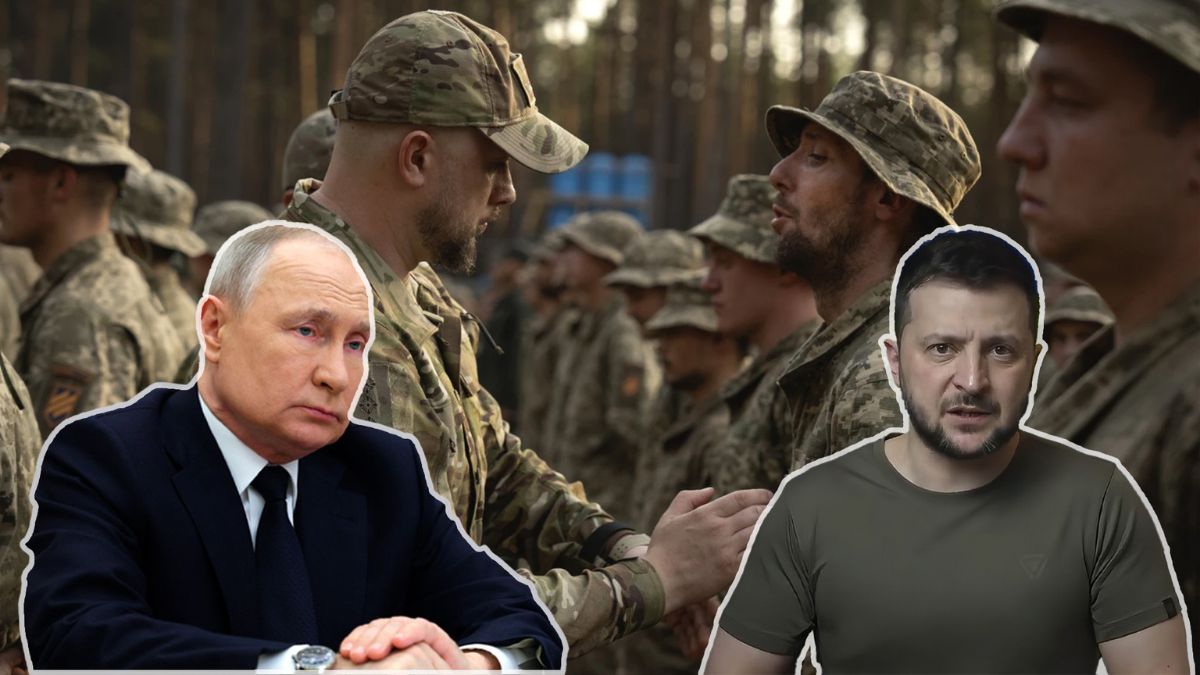As US President Donald Trump floats the idea of a peace deal to stop the Russia-Ukraine war, Kursk has become the centre of the ongoing conflict. While the ongoing war started off with eastern Ukrainian territories at stake, the Russian border region, many believe, is most likely to face the major wrath of both sides.
Last year, a Russian special forces commander who served on four battlefronts across eastern Ukraine after joining Russia’s invasion nearly three years ago told the New York Times, that the most ferocious fighting is currently unfolding back home. Throughout the ongoing conflict, both sides have committed a significant share of their limited reserves to control Sudzha, a once sleepy county seat in the Kursk region, near the Russian border.
“These are the most brutal battles — I haven’t seen anything like this during the entire special military operation,” the commander, who leads about 200 men fighting in Kursk, said in an interview with the New York Times. The Russian soldiers believe that the fight in the region is about to get even more bloodier. “We are expecting Bakhmut 2.0,” said that Russian commander serving in Akhmat, which is made up in large part of the remnants of Wagner paramilitaries.
Why Kursk is at the centre of the conflict?
Both Russia and Ukraine are looking at Kursk as a “must-have territory” in any kind of peace talks which have been promised by Trump. According to NYT, Ukraine has been putting its best reserves in serving in Akhmat, which is made up in large part from the remnants of Wagner paramilitaries.
Ukrainians “wanted to conduct the talks from a position of strength,” Lt. Gen. Apti Alaudinov, the commander of the Akhmat special forces unit from Russia’s Chechnya region told NYT. Meanwhile, for Russian President Vladimir Putin, the Ukrainian incursion — the first invasion of Russian territory since World War II — can be seen as a major embarrassment. He has been pushing the Ukrainian forces to leave the area so that he does not have to make any concessions just to get back to Kusk.
As per the report, Moscow has also been deploying tens of thousands of soldiers, including conscripts and North Korean allies, to repel the Ukrainian invaders. With stakes so high, both sides are not expecting heavy casualties in the region.
Impact Shorts
More ShortsWhat does Ukraine want?
Earlier this week, Ukrainian President Volodymyr Zelenskyy revealed his cards when he said that he would give up the Kursk region if US President Donald Trump successfully negotiates a peace deal between Russia and Ukraine. In an interview with The Guardian, the Ukrainian leader said that he would like to “swap one territory for another.”
Since Ukraine commenced its invasion into Russian territory, both sides have taken significant losses in Kursk’s exposed, flat terrain punctuated by small villages, although the armies closely guard their casualty rates. Russia has been able to recover about 60 per cent of the 500 square miles initially captured by Ukraine.
However, it is the residents of the Kursk who are ultimately struggling. The two sides have blamed each other for failing to provide conditions for the remaining residents to leave, forcing those civilians to endure the Russian winter with scarce food supply, heating or electricity.
What does Russia want?
After Zelenskyy floated the idea, the Kremlin made it clear that Russia would never consider exchanging occupied Ukrainian land for parts of its Kursk region. While responding to the proposal on Wednesday, Putin’s spokesperson, Dmitry Peskov, stressed that Moscow strongly rejected all offers to trade territory.
“This is impossible,” he told reporters at a daily briefing. “Russia has never discussed and will not discuss the exchange of its territory." “Ukrainian units will be expelled from this territory. All who are not destroyed will be expelled," he added.
During his annual call-in with the nation, last year, Putin assured Russians that their troops would eventually expel Ukrainian forces from Kursk but declined to specify a timeline. With Trump pushing for talks, Russia would like to maintain the upper hand in the negotiation, which it did before Ukraine invaded Kursk.
With inputs from agencies.
)